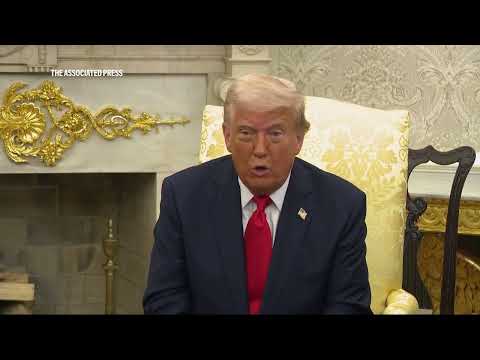The Global Economy: Trends, Challenges, and Opportunities
The world economy is a complex web of interconnected markets, industries, and nations that shape the financial landscape we live in. As we navigate through the 21st century, several key trends, challenges, and opportunities are shaping the global economy.
Trends in the World Economy
One major trend in the global economy is the rise of emerging markets such as China, India, and Brazil. These countries have experienced rapid economic growth and are becoming major players on the world stage. Additionally, technological advancements are transforming industries and creating new opportunities for businesses to thrive in a digital age.
Challenges Facing the Global Economy
Despite progress, the global economy faces numerous challenges. Income inequality continues to widen within and between countries, posing social and political risks. Trade tensions between major economies like the US and China create uncertainty that can impact global markets. Climate change also presents a significant challenge as nations grapple with its economic implications.
Opportunities for Growth
Amidst challenges, there are also opportunities for growth in the global economy. Sustainable development offers a pathway to address environmental concerns while promoting economic prosperity. Investing in education and skills training can enhance human capital and drive innovation. Embracing digital transformation can unlock new markets and drive productivity gains.
In Conclusion
The world economy is a dynamic entity that evolves with each passing day. By understanding key trends, addressing challenges proactively, and seizing opportunities for growth, nations can foster a more inclusive and sustainable global economy that benefits all stakeholders.
Understanding the Global Economy: Key Questions and Insights
- Who is number 1 economy in the world?
- How is the global economy now?
- What is the total world economy?
- What is the world’s economy?
- What global economy means?
- What is the top 5 economy in the world?
Who is number 1 economy in the world?
One of the most frequently asked questions in discussions about the world economy is, “Who is the number 1 economy in the world?” The answer to this question often revolves around the economic indicators such as Gross Domestic Product (GDP), which measures the total value of goods and services produced by a country. As of recent data, the United States holds the position as the world’s largest economy based on GDP. However, it’s important to note that economic rankings can fluctuate over time due to various factors such as trade dynamics, technological advancements, and government policies.
How is the global economy now?
The state of the global economy is a topic of keen interest and scrutiny for individuals, businesses, and policymakers worldwide. Currently, the global economy is navigating through a period of uncertainty and volatility, marked by various challenges such as trade tensions, geopolitical risks, and the ongoing impact of the COVID-19 pandemic. While some regions are experiencing economic recovery and growth, others are grappling with sluggish performance and structural issues. Central banks and governments are implementing measures to stimulate growth, support employment, and address income inequality. Monitoring key indicators such as GDP growth rates, inflation levels, and trade volumes provides insights into the current health of the global economy and informs decision-making at both local and international levels.
What is the total world economy?
The total world economy refers to the sum of all economic activity across the globe, encompassing the production, consumption, and exchange of goods and services by individuals, businesses, and governments worldwide. Calculating the exact size of the world economy is a complex task that involves measuring the Gross Domestic Product (GDP) of all countries and adjusting for factors such as currency exchange rates and purchasing power parity. Various international organisations like the World Bank and the International Monetary Fund provide estimates of the total world economy based on data from national statistical agencies. Understanding the total world economy is crucial for policymakers, economists, and businesses to analyse global trends, make informed decisions, and foster sustainable economic growth on a global scale.
What is the world’s economy?
The world economy refers to the interconnected system of production, distribution, and consumption of goods and services on a global scale. It encompasses the economic activities of all countries and regions, reflecting the complex web of trade, finance, and investment that shapes our interconnected world. The world economy is influenced by factors such as international trade agreements, monetary policies, technological advancements, and geopolitical events. Understanding the dynamics of the world economy is crucial for policymakers, businesses, and individuals alike in navigating the complexities and opportunities of our globalised economic landscape.
What global economy means?
The term “global economy” refers to the interconnected system of production, distribution, and consumption of goods and services on a worldwide scale. It encompasses the flow of trade, investment, technology, and information between countries, shaping the economic interactions that transcend national borders. The global economy reflects the interdependence of nations in today’s interconnected world, where economic policies, events, and trends in one part of the globe can have far-reaching impacts across various regions. Understanding the concept of the global economy is essential for grasping how nations collaborate and compete in a complex network that influences livelihoods, businesses, and policies on a global scale.
What is the top 5 economy in the world?
One frequently asked question regarding the world economy is, “What are the top 5 economies in the world?” As of the latest data, the top 5 largest economies globally are the United States, China, Japan, Germany, and India. These nations play a significant role in shaping the global economic landscape through their contributions to GDP, trade, innovation, and overall economic influence. Understanding the rankings of these top economies provides valuable insights into the interconnected nature of international markets and highlights key players driving economic growth on a global scale.

